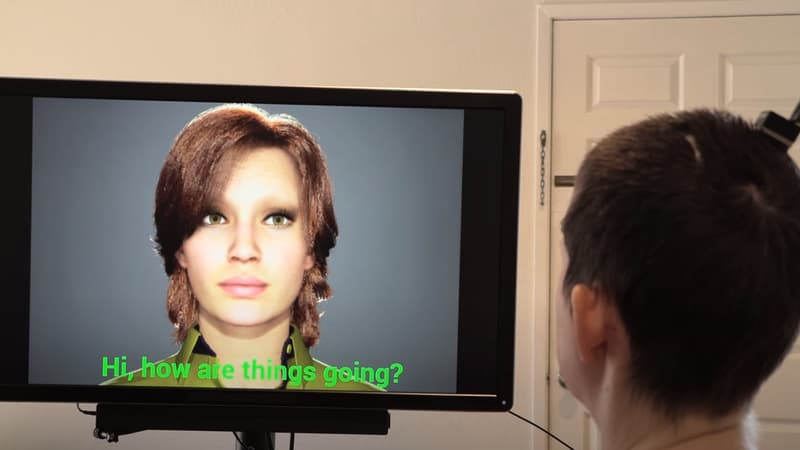A promising breakthrough in the use of artificial intelligence (AI) in the medical field. Two teams of researchers have developed systems capable of translating neural signals into text or words, the results of which have been published in the scientific journal Nature August 23 and seen by the parisian.
The first study tested a system for deciphering thoughts. You can decode 62 words per minute. A natural conversation contains about 160 words per minute. Specifically, the first device can convert electrical signals from the brain into text. Thus, a device composed of electrodes is implanted in the region of the brain related to speech.
A 67-year-old American patient with Charcot’s disease, a disease that causes progressive loss of muscle control, resulting in difficulty moving and speaking, was transplanted with this device.
A system powered by machine learning algorithms then interprets brain activity and converts it into words spoken by a synthetic voice.
Two configurations have been tested with this system. The first with a vocabulary of 125,000 words and the second with a sample of 50 words. As a result, approximately 3 out of 4 words were correctly deciphered.
a similar voice
The second study highlights the results of an experiment with a less invasive implant than the first, placed on the surface of the cerebral cortex with a system capable of decoding 78 words per minute.
The teams created an AI to convert patient Ann’s brain signals into a synthetic voice and an animated avatar that mimics facial expressions. They also customized her voice to sound like Ann’s, training it on recordings from her wedding video.
After the publication of this promising study, since the detection of the number of words per minute has never been more important, the scientists stress that many improvements are still needed before a clinical application.
In particular, wireless technology should be developed for everyday use. The devices also need to be tested on more people to prove their reliability.
Source: BFM TV


